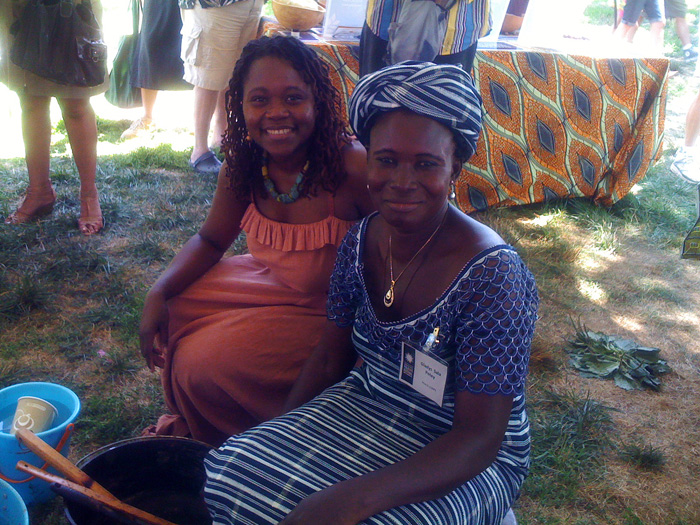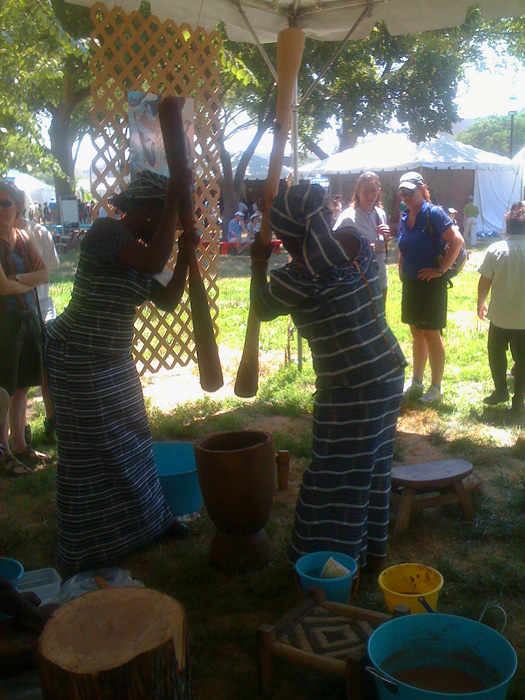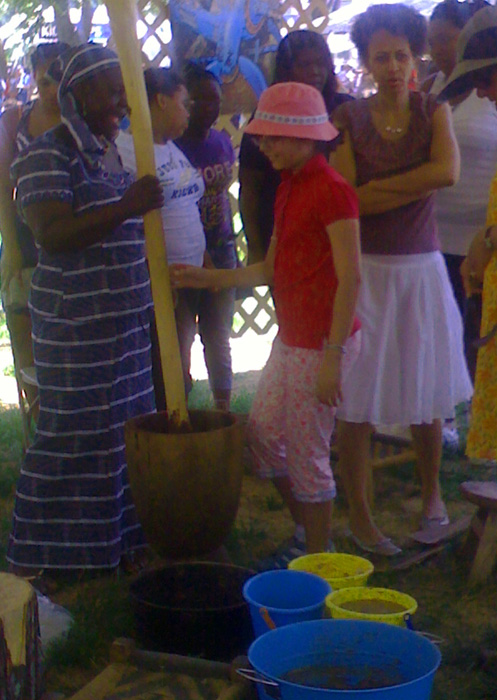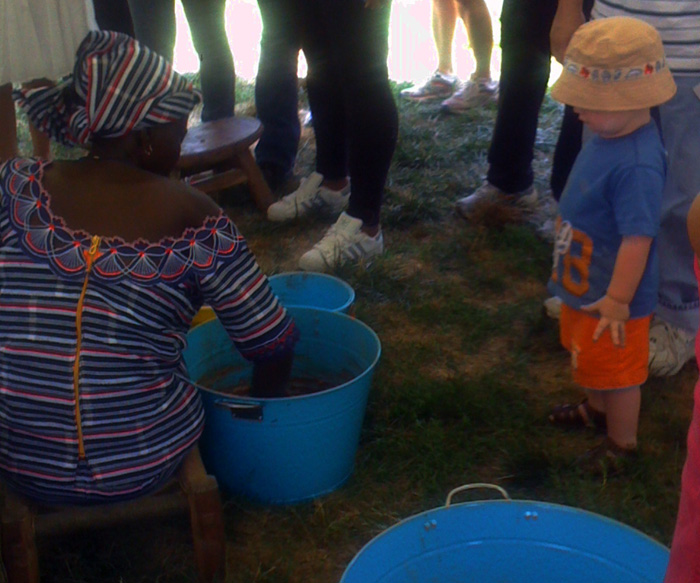Bringing Light to West Africa
As Rahama Wright embarked on a two year Peace Corps assignment in Mali, she had every intention of seizing the opportunity to empower and transform the lives of countless women. Just how she planned to do it would require ingenuity, determination, and most importantly, flexibility. After completing her undergraduate studies, Rahama worked as a Peace Corps health volunteer providing pre- and post-natal care and support for the village’s health center.
While medicine was not her original course of study, her adaptable spirit allowed her to flourish in this new discipline. As she worked away providing care for the mothers of a Malian village, she contemplated how she could incorporate her interest in shea butter with her current position. She had already heard of shea butter and was very interested in learning more. She considered creating a secondary venture that would consist of a small enterprise development project, not knowing that it would blossom into a business that would generate income for Malian women.
Click on the image below to enlarge and view captions.

-
Rahama Wright (left) with Gladys Sala Petey, who supervises production teams in Ghana, take a break from their demonstrations in the Peace Corps program of the 2011 Festival.Photo by Katherine Campbell
-
Braimah Shietu and Rukayu Amidu work in unison to demonstrate the shea butter production process in the Peace Corps program of the Festival.Photo by Katherine Campbell
-
Braimah Shietu of Damongo, Ghana, enlists the help of a Festival visitor.Photo by Katherine Campbell
-
Rukaya Amidu of Damongo, Ghana, demonstrates another part of the production process while a young Festival visitor looks on in amazement.Photo by Katherine Campbell
“Be flexible…There is a reason why you’re there!” was Rahama’s response when I asked what advice she would give to other Peace Corps volunteers. She recounts leaving behind many of the creature comforts we take for granted, like the bus running on schedule or the convenience of shopping. She emphasizes that every day brought her new experiences. In addition to being adaptable, she advises, “You don’t know everything.” While Peace Corps volunteers have attained higher education, they have to adapt to a completely new and alien culture.
Peace Corps training prepares its volunteers for the jolting experience of transitioning into a new world and how to understand new cultures and practices. It is important to couple knowledge with a willingness to learn more. “You can’t quantify your experience, you must qualify it…” sticks out in my mind as Rahama and I continue with our conversation. She explains to me that Peace Corps volunteers may become discouraged in their experiences. Volunteers, like Rahama, are often living in countries where basic infrastructure is lacking. This includes the running water and electricity we use freely every day. While volunteers work to transform the lives of those they work with, there are limitations. Rahama explains that it is necessary to focus on the positive experiences, and not dwell on what is beyond one's control. Peace Corps volunteers will have to learn new traditions, languages, and social norms. Rahama insists it was her flexibility and adaptability that allowed her to connect with community leaders, women’s leaders, and elders.
As her women’s cooperative continued to grow, Rahama bore witness to the transformation taking hold in her community. Women’s wages increased tremendously and new opportunities arose for all of them. Sending their children to school was now an attainable goal. The organization she founded, Shea Yeleen International, has now had over 800 women work in its women’s cooperatives in Mali, Ghana, and Burkina Faso. When I asked Rahama what “yeleen” means, she explains that it is a Malian word for “light/luminous.” While shea butter is known for its restorative effects on the skin and body, Shea Yeleen has been a source of light and warmth for the women of West Africa.
Katherine D. Campbell is an educational aide/facilitator in the Lemelson Center at the Smithsonian's National Museum of American History.




